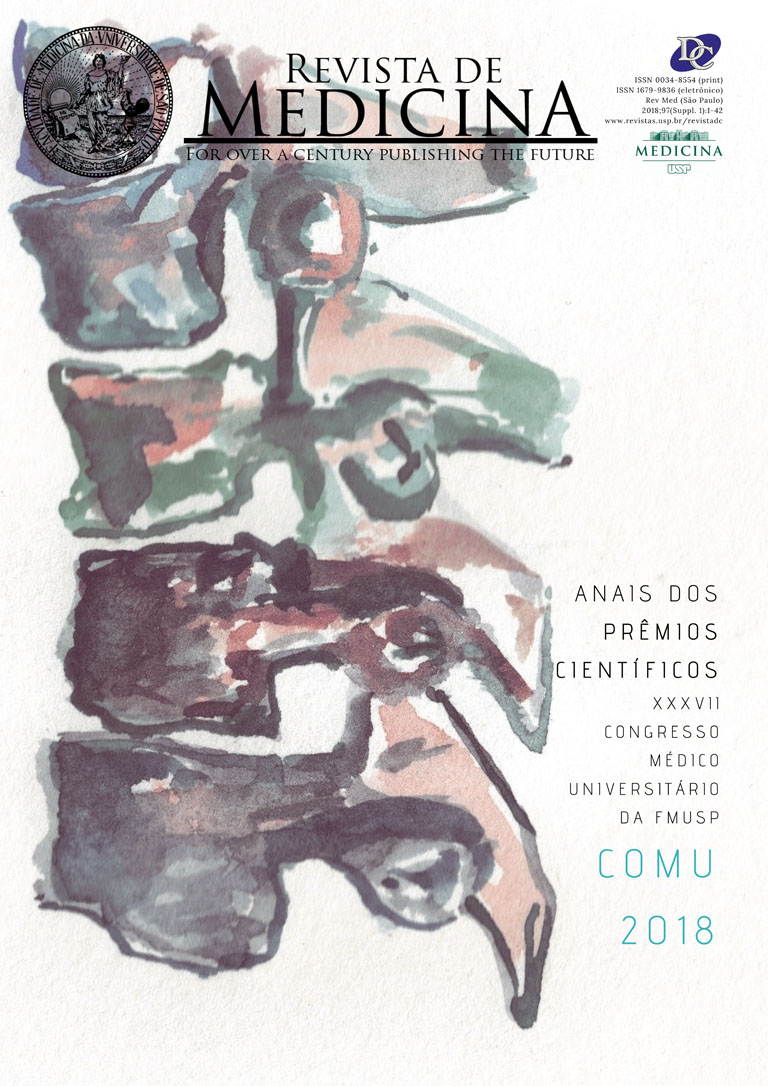Immune thrombocytopenia: clinical features and analysis of risk factors to response to the treatment
DOI:
https://doi.org/10.11606/issn.1679-9836.v97iSuppl.1p24-24Palavras-chave:
Púrpura Trombocitopênica Idiopática, Fatores de risco, EsplenectomiaResumo
Introduction: Immune thrombocytopenia (ITP) is an acquired decrease of platelets, caused by autoantibodies against platelets, in the absence of an associated condition. ITP is associated to low morbidity and mortality, however there is reduced quality of life on the patients under treatment. This study has as objectives to describe the clinical features of the patients and the evaluation of risk factors related to the response to treatment. Methods: A retrospective analysis was achieved, regarding the medical records of 99 patients diagnosed with ITP and seen between May of 1992 and August of 2016 in a hospital.
Results: 99 patients were analyzed, 71 female (71.7%). Mean age 39 years old to diagnosis (variation 2-84). 83.3% of the patients were chronic ITP and the mean follow up 49.2 months (0,1-289). 74.7% of patients presented bleeding to diagnosis. 76.7% of patients required treatment, and there was remission in 7 (30.4%) of the 23 patients who did not receive any treatment. 37 patients were submitted to splenectomy, 30 (81.1%) of those obtained partial or complete response and 18 (48.6%) presented loss of response. 30% of patients were submitted to posterior treatments. Only two patients had death related to ITP. In bivariate analysis of risk factors to response to the treatment, the only predictors of chronicity were initially the absence of corticosteroid dependence and absence of response to splenectomy, however in multivariate analysis those factors had their significance discarded. Conclusion: The presented results did not confirm a higher progression rate to chronicity in non corticosteroid-dependent patients and in those who did not present response to splenectomy. The clinical features, response pattern and survival of analyzed patients were similar to other studies reported.
Downloads
Referências
Downloads
Publicado
Edição
Seção
Licença
Direitos autorais (c) 2018 Revista de Medicina (São Paulo)

Este trabalho está licenciado sob uma licença Creative Commons Attribution-ShareAlike 4.0 International License.




